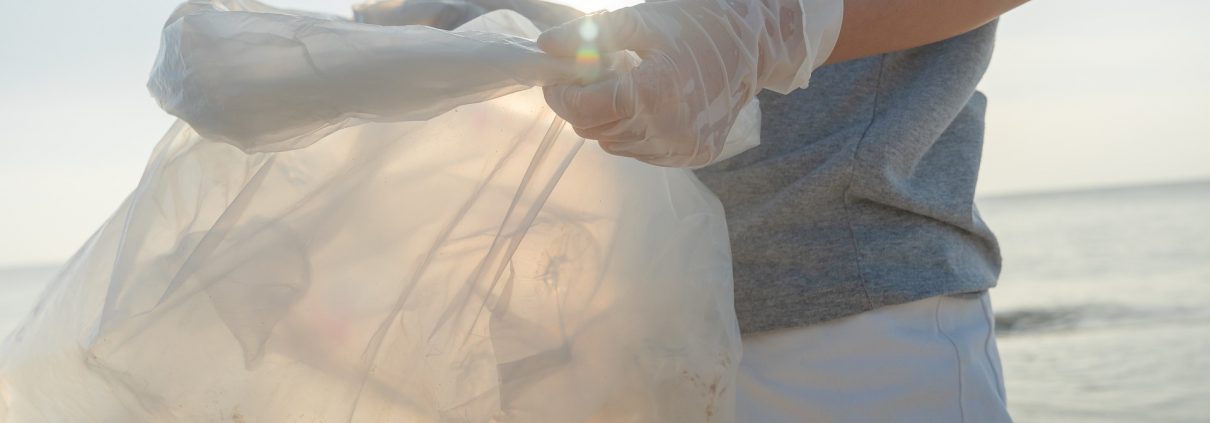Addressing Marine Debris through Education and Community Engagement
Massachusetts Marine Debris From Source to Stellwagen: A Comprehensive Suite of Tools for Environmental Educators
PI: Dr. Michael Triantafyllou, Director, MIT Sea Grant
Co-PIs: Dr. Kristin Burkholder, Associate Professor of Environmental Science, Stonehill College; Jack Buckley, President, Cohasset Center for Student Coastal Research
MIT Sea Grant Personnel: Dr. Andrew Bennett, Education Administrator; Ben Bray, Geospatial Applications Developer
MIT Sea Grant was awarded $286,284 through the National Sea Grant Infrastructure Investment and Jobs Act (IIJA) Marine Debris Community Action Coalition Competition.
In collaboration with Stonehill College and the Cohasset Center for Student Coastal Research, MIT Sea Grant will form a coalition of K-12 educators and students, environmental organizations, communities, and commercial fishermen to address issues of marine debris in eastern Massachusetts together. The project addresses marine debris across the “lifetime” of debris. MIT Sea Grant will explore the complex issues surrounding the source(s) of marine debris as well as the impacts that marine debris have on ecosystems downstream. The work will be structured around three central pillars:
- Building new tools that allow for the tracking and visualizing of marine debris
- Conducting a teacher training program that introduces teachers to new tools and curricula, allowing them to incorporate NOAA Marine Debris Program’s four foundational questions (What is marine debris? Where does it come from? How does it get there? Where does it go?) into their classrooms in meaningful ways
- Creating a “Pathways to Sustainability and Justice Internship Support Program” that lowers barriers for students so that they can continue to explore issues of marine debris after their school curriculum ends. Upon completion of the grant period, educator partners will have tools and curricula (made publicly available) that will allow them to continue marine debris activities in their classrooms for years to come.
Student participants will engage with a marine debris curriculum that culminates in a capstone civics project, have the opportunity to earn a Source to Stellwagen Certificate from Stellwagen Bank National Marine Sanctuary, and have access to internships to continue their exploration of marine debris issues. The efforts will help create and strengthen a network of environmental organizations, K-12 educators and students, commercial fishermen, and communities in eastern Massachusetts.
Background: NOAA Sea Grant announces $27M to further community-engaged marine debris removal and prevention
NOAA Sea Grant announced $27 million in projects that will address the prevention and removal of debris in marine and Great Lakes environments throughout the U.S. Using Sea Grant’s partnered approach to bring science together with communities for solutions that work, the projects will support transformational research and the creation of local coalitions to address urgent marine debris prevention and removal needs. >>Read the full NOAA Sea Grant announcement
“Marine debris is a pervasive problem, negatively impacting local economies, tourism, wildlife and ecosystems, and human health. The work supported by these projects presents exciting opportunities to tackle a wide range of debris issues, such as microplastics, single-use food packaging and derelict fishing gear, using an assortment of innovative approaches informed by and implemented with communities.”
– Jonathan Pennock, NOAA Sea Grant Director
The projects were competitively selected through two opportunities supported by the Bipartisan Infrastructure Law, a federal government-wide investment that furthers NOAA’s efforts to build a Climate-Ready Nation, and leveraging funds from the Inflation Reduction Act — the Marine Debris Challenge Competition and the Marine Debris Community Action Coalitions.
Through the Challenge competition, 10 projects were recommended for approximately $22 million in total funding to push the boundaries of existing marine debris prevention and removal technologies and approaches, change the current landscape of marine debris mitigation, and tie research to tangible outputs.
The Community Action Coalitions will engage communities, groups, and localities to transfer research into action and inform collaborative on-the-ground marine debris removal and prevention efforts. A total of 19 projects recommended for approximately $5 million in total funding, including an MIT Sea Grant project partnering with Stonehill College and the Cohasset Center for Student Coastal Research.
>>Read the full NOAA Sea Grant announcement




